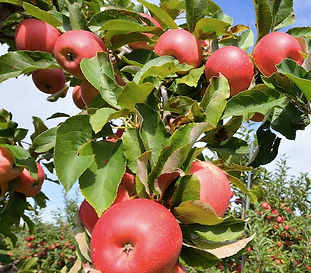
Burwash Horticultural Society
Affiliated to the Royal Horticultural Society and the Kent Federation of Horticultural Societies

Welcome to our Society
We are an active group of gardening enthusiasts based in Burwash, attracting members from the village and surrounding areas.
Our aim is to inform, entertain and interest our members in plant and garden related subjects in a sociable, informal and friendly group setting.
The Society is a great place for sharing knowledge, experience and friendship. If you enjoy growing fruit, vegetables or flowers, flower arranging, cookery, arts and crafts or indeed anything garden related, why not join us?
Find out more About us
Next events
AGM
Tuesday 17th March 2026
10am Burwash Village Hall
Spring Show
Saturday 21 March 2026
The Full 2026 Society schedule is now available, click here .
A hard copy can be picked up from The Flower House, Burwash.
Past Events
Summer Show
Saturday 26th July 2025
Go to shows for results and photos
Rose and Sweet Pea Show
Saturday 21 June 2025
Go to shows for results
Spring Show
Saturday 22 March 2025
Go to shows for results
Talks 2026
Go to the talks page for more information.
Plant Sale
Saturday 9th May 2026
Join us for a chance to buy some good quality plants, some grown by our members and some provided by Cade Street Nursery. Refreshments will be available.
Results and photos of 2025 and 2024 shows
Go to the show pages
* * * * *
AGM year ending 31/12/2025
Tuesday 17th March 2026
10am Parish Room
Burwash Village Hall
Cost of membership is £3.00 per calendar year which runs from 1 January 2026 to 31 December 2026. A new membership form is available here.
The Gardener's Year
Some monthly gardening tips
MARCH 2026
Blue Tit
-
Blue tits, Cyanistes caeruleus, are an easy spot in winter due to their bright cerulean and yellow-green colouring.
-
These are remarkably common garden birds – since the 1960s their numbers have risen considerably, although there has been a slight decline since 2010.
-
During daylight hours, you’ll often see them spending time on bird feeders, consuming large amounts to get them through cold winter nights.
-
They also search out insects and spiders and can eat up to 30% of their body weight in food each day.
-
Length 12cm; Wingspan 18cm; Weight 11g
Some jobs for Spring
-
Prune back cornus.
-
Clear vegetable plots and prepare for planting.
-
Prune raspberry canes.
-
Clear footpaths of moss and weeds.
-
First sow of cabbages, kale, cauliflower seeds.
-
Sow root crops.
-
Last chance to plant fruit trees.

Ripe apples

Hamamelis mollis

Blue Tit
Credit Natural History Museum